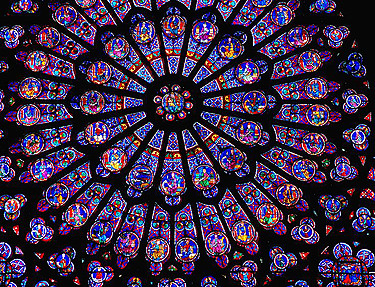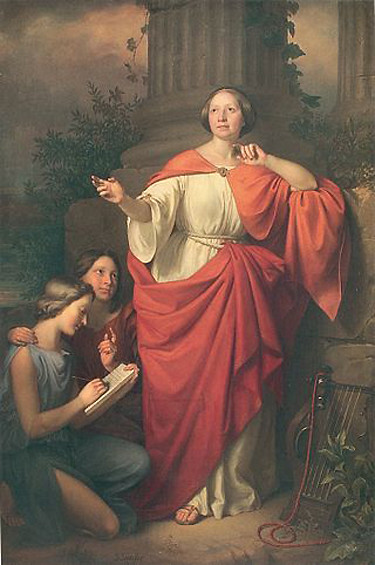
Volume XVIII, Issue XXIV: “L’essentiel est invisible pour les yeux.”
I realize this is a piece I just published, but I am purposefully putting it out here again as it seems very appropriate for the times we are going through. Ugliness rules, Rudeness masquerades as Righteousness, Vileness masquerades as Virtue. How did we get here? More importantly, how do we find the way out. Here are some great thinkers who have great insight. I need to be a part of the movement that builds, not destroys, that learns from history, not just erases it. I need to be part of the movement that sees us as One Race, beautiful in its true variety – that the peoples of the earth are all made in the Image of God – in all the beautiful tones of fine earth! IMAGO DEI! I need to be part of Rebuilding, Worshiping, Finding and Sharing Objective Beauty and Objective Truth. To that end, Let the Journey Begin!
“L’essentiel est Invisible pour les Yeux”
[click to read]
by Andrew Petiprin
In the Spring of my sophomore year at the University of Pittsburgh, I went to a Presbyterian church for a Good Friday prayer service. All of a sudden, walking straight at me was Fred Rogers—that is, Mister Rogers—who sat down next to me, introduced himself, and asked me what I was studying. I told him I was a French major, and he took out his bulletin and wrote, “L’essentiel est invisible pour les yeux.” It is perhaps the most famous line in Antoine de Saint-Exupéry’s 1943 classic, The Little Prince. It translates, “Anything essential is invisible to the eyes.” I needed that wisdom then, and I need it now. (read more)
Faith and Beauty
Images that Lead to Worship and Relationship with God

North Rose Window, Notre Dame de Paris.

North Rose Window, Notre Dame de Paris.

Sound Sculpture, Xaver Wilhelmy's design for functional glass organ pipes in a window combines beautiful visual imagery with beautiful music. Rendering by Bob Kirchman.
Catholicism and Beauty
By Bishop Robert Barron
A refreshing perspective on the place of the beautiful in leading to Faith.
Plato's Symposium
[click to read]

Diotima, painting by Józef Simmler, 1855. In Plato's Symposium the members of a party discuss the meaning of love. Socrates says that in his youth he was taught "the philosophy of love" by Diotima, who was a seer or priestess. Socrates also claims that Diotima successfully postponed the Plague of Athens. In a dialogue that Socrates recounts at the symposium, Diotima gives Socrates a genealogy of Love (Eros), stating that he is the son of "resource and poverty". In her view, love is a means of ascent to contemplation of the Divine. For Diotima, the most correct use of love of other human beings is to direct one's mind to love of Divinity. The beautiful beloved inspires the mind and the soul and directs one's attention to spiritual things. One proceeds from recognition of another's beauty, to appreciation of Beauty as it exists apart from any individual, to consideration of Divinity, the source of Beauty, to love of Divinity.
Concerning the things about which you ask to be informed I believe that I am not ill-prepared with an answer. For the day before yesterday I was coming from my own home at Phalerum to the city, and one of my acquaintance, who had caught a sight of me from behind, hind, out playfully in the distance, said: Apollodorus, O thou Phalerian man, halt! So I did as I was bid; and then he said, I was looking for you, Apollodorus, only just now, that I might ask you about the speeches in praise of love, which were delivered by Socrates, Alcibiades, and others, at Agathon's supper. Phoenix, the son of Philip, told another person who told me of them; his narrative was very indistinct, but he said that you knew, and I wish that you would give me an account of them. Who, if not you, should be the reporter of the words of your friend? And first tell me, he said, were you present at this meeting? (read more)
Love is...
The Ultimate Definition
Love never gives up.
Love cares more for others than for self.
Love doesn’t want what it doesn’t have.
Love doesn’t strut,
Doesn’t have a swelled head,
Doesn’t force itself on others,
Isn’t always “me first,”
Doesn’t fly off the handle,
Doesn’t keep score of the sins of others,
Doesn’t revel when others grovel,
Takes pleasure in the flowering of truth,
Puts up with anything,
Trusts God always,
Always looks for the best, Never looks back,
But keeps going to the end.
— 1 Corinthians 13:4-7 (MSG)
Why Beauty Matters
Roger Scruton
